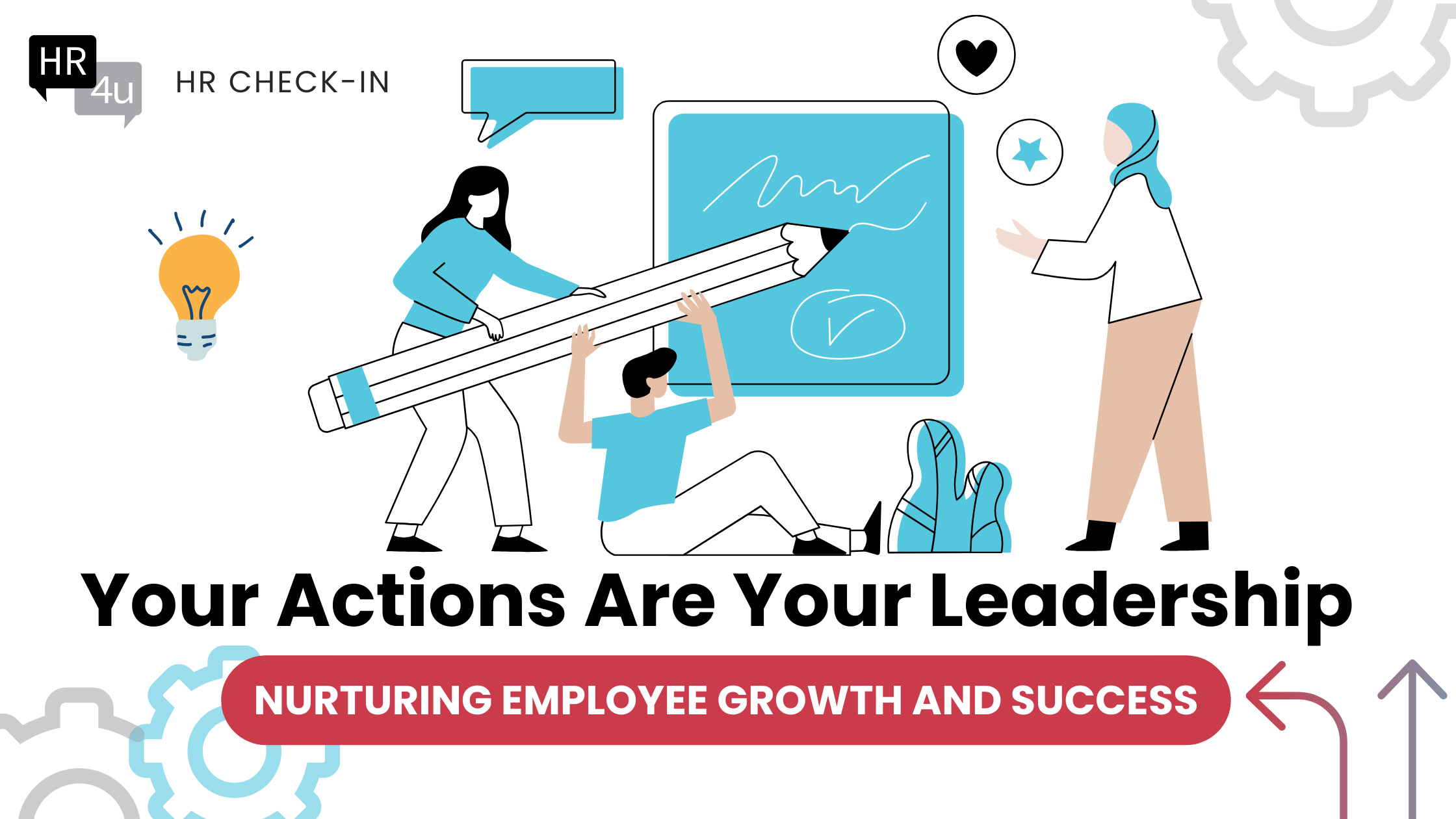Nurturing Employee Growth and Success
As the world adapts, some things remain tried and true: the success of any organization is intricately tied to the quality of its workforce. HR plays a pivotal role in shaping the trajectory of a company by strategically managing the recruitment, training, and development of its employees. In today’s edition of HR Check In, we’ll dive into the crucial aspects of hiring and expanding employee training and growth, with a particular focus on fostering long-term success and cultivating employee career paths.
HR4U tuned in with Jeremy Miller and Sticky Branding to give some insights on what it takes to attract and retain the right people. You can check that video out here.
Strategic Hiring for Long-Term Fit:
The foundation of a successful organization begins with hiring the right people. Companies need to adopt a strategic approach to recruitment that goes beyond just filling vacant positions. Consider the long-term goals of the company and hire individuals who not only possess the required skills for the current role but also demonstrate the potential for growth and adaptability. Today’s applicants are looking for more than just salary – they’re looking for an opportunity to thrive.
A workforce that shares common values is more likely to be engaged, motivated, and committed to long-term success.
Investing in Employee Training and Development:
The learning landscape is evolving rapidly, and organizations must keep pace with these changes to stay competitive. Develop and implement training programs that empower employees to acquire new skills, stay relevant in their roles, and contribute effectively to the company’s growth.
Amplify your people: invest in personalized development plans for employees. Tailor training programs to address individual strengths, weaknesses, and career aspirations. This not only enhances employee satisfaction but also contributes to a more skilled and versatile workforce.
Creating Clear Career Paths:
Employees are more likely to remain committed to an organization when they see a clear and achievable career path. HR should work in tandem with leadership to establish transparent career progression frameworks. This involves identifying key milestones, skills, and experiences required for advancement within the company.
Regularly communicate these career paths to employees, providing them with a roadmap for growth and success. Be transparent and communicative – encourage open discussions about career goals during performance reviews to ensure that individual aspirations align with organizational objectives.
Mentorship and Coaching Programs:
Establishing mentorship and coaching programs can significantly contribute to employee development. Pair experienced employees with those who are seeking guidance and support. This not only facilitates knowledge transfer but also creates a supportive environment where employees can openly discuss their career goals and challenges.
HR should actively identify potential mentors within the organization and match them with employees based on skills, interests, and career objectives. This investment in mentorship fosters a sense of community and shared purpose among employees.
Performance Recognition and Feedback:
Regularly recognizing and rewarding employees for their contributions is essential for maintaining high morale and motivation. HR should work closely with management to implement effective performance recognition programs. These programs should not only acknowledge outstanding individual achievements but also celebrate team successes.
In addition to positive reinforcement, constructive feedback is equally important. Regular performance reviews provide an opportunity to discuss progress, set new goals, and identify areas for improvement. Constructive feedback, when delivered effectively, helps employees understand their strengths and areas that need development.
Our leadership is made up of our actions. HR plays a crucial role in shaping the success of an organization through strategic hiring, employee training, and long-term growth initiatives. Fostering a culture that values employee development, clear career paths, mentorship, and performance recognition creates a thriving workplace where employees are not just workers clocking in and out, but contributors to the overall success of the company and self-growth for their own futures. In this dynamic environment, leadership is not just a title but a series of intentional actions that pave the way for sustained growth and employee fulfillment.
